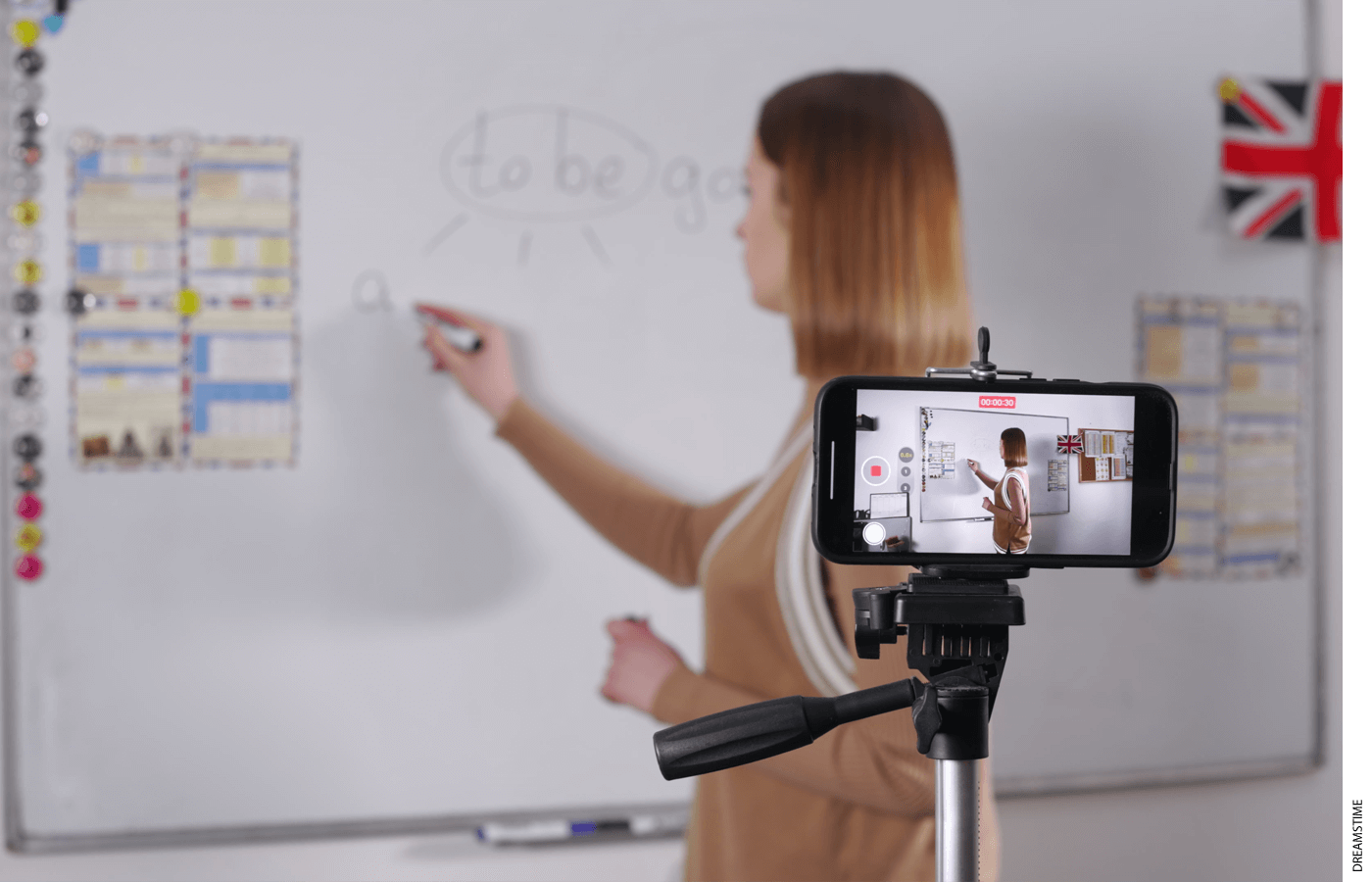Reflecting on the tenets that shape our educational practices is fundamental for …
AI-Powered Classroom Observations Revolutionize Education
Emma Wordsmith

Typically associated with edtech enthusiasm, the initial excitement surrounding artificial intelligence in education primarily focused on applications aimed at students. Platforms such as IXL, Zearn, and Khan Academy’s chatbot Khanmigo sought to revolutionize personalized instruction. However, the limitations of AI in engaging and motivating students quickly became apparent, highlighting the irreplaceable role of human educators in the learning process.
While AI may not supplant teachers, it holds promise in enhancing their effectiveness. Several companies are integrating AI with accessible video technology to offer remote feedback to teachers through asynchronous observation. This integration presents an attractive proposition, considering the efficacy and popularity of instructional coaching in education.
These AI-powered tools cater not only to teachers seeking professional growth but also have broader implications for enhancing overall instructional quality. Comparable to police body cameras, video recordings combined with AI tools can offer transparency in classrooms, enabling better performance evaluation and behavior management.
Utilizing Apps for Teacher Observations
The concept of video-based observations is not novel. Originally, teachers would record their instructional sessions, select exemplary segments, and share them with instructional coaches or principals for feedback. This methodology was a key innovation of the Measures of Effective Teaching (MET) project initiated by the Bill & Melinda Gates Foundation in 2009.
Edthena is one of the companies at the forefront of offering coaching through video feedback. Founded by Adam Geller, a former science teacher who transitioned into educational leadership, Edthena aims to bridge the feedback gap by facilitating regular and constructive feedback for educators through video coaching.
Edthena’s recent introduction of an “AI Coach” chatbot provides personalized prompts to teachers as they review their lesson recordings, fostering self-assessment against professional benchmarks and guiding them in crafting improvement plans.
Although AI coaches do not replace human interaction entirely, they serve as valuable tools for educators to engage in reflective teaching practices, akin to mental health chatbots aiding individuals in self-reflection and constructive thinking.
Enhancing Teaching through Data Analysis
While platforms like Edthena focus on reflective practices, TeachFX revolves around data-driven insights. TeachFX uses audio recordings in classrooms coupled with AI-based voice recognition to differentiate between teacher and student interactions during lessons. Teachers receive detailed breakdowns of class dynamics, including teacher talk time, student engagement, and verbal exchanges, resembling a fitness tracker for instructional practices.
Founded by Jamie Poskin, TeachFX originated from the need to offer feedback to teachers based on evidence-driven metrics. The technology accurately distinguishes teacher-student dialogues and has demonstrated improvements in student engagement and teacher practices through data-informed coaching.
As TeachFX’s capabilities expanded with additional metrics aligned with best practices, such as question type analysis and wait times, empirical research showcased the positive impact of feedback on teaching quality and student engagement.
Exploring AI’s Role in Evaluation
While AI holds potential for providing constructive feedback, integrating it into formal teacher evaluations raises concerns among education experts. Thomas Kane from the Harvard Graduate School of Education acknowledges AI’s value in offering frequent feedback devoid of supervisory influence. However, there is apprehension about using AI in performance evaluations, as it may deter teacher willingness to engage with such technologies.
Both Edthena and TeachFX maintain a focus on supporting teachers’ professional growth rather than using their platforms for formal evaluations. Empowering teachers to leverage recordings for coaching sessions or evaluations preserves their autonomy and control over the process and data.
These tools offer significant benefits for dedicated educators willing to enhance their teaching practices, but the challenge lies in motivating teachers, similar to student engagement difficulties. While some districts incentivize the use of such technologies, universal adoption may face hurdles, especially among teachers resistant to incorporating new tools.
Transitioning from Surveillance to Support
Considering the success of video monitoring in law enforcement, a similar approach in education could hold potential in enhancing teaching quality. Implementing cameras and sound recording devices in classrooms, supported by AI analysis, could offer invaluable insights into instructional practices and student interactions, potentially elevating student achievement.
However, issues surrounding privacy, accountability, and teacher receptivity may impede the widespread adoption of such surveillance measures in schools. Despite the potential benefits of AI-supported monitoring, the focus should remain on assisting dedicated teachers in achieving excellence rather than solely holding ineffective educators accountable.
Michael J. Petrilli is president of the Thomas B. Fordham Institute, visiting fellow at Stanford University’s Hoover Institution, and an executive editor of Education Next.
The post Next-Gen Classroom Observations, Powered by AI appeared first on Education Next.



